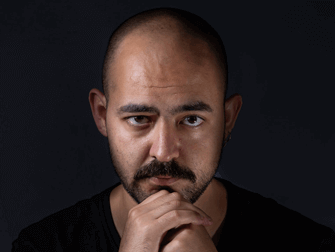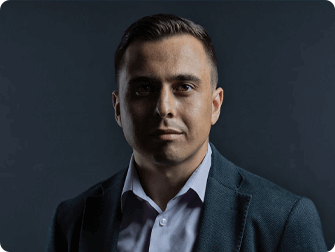Welcome to my world
Hi, I’m Zara Fatima
Social Politician.
I use animation as a third dimension by which to simplify experiences and kuiding thro each and every interaction. I’m not adding motion just to spruce things up, but doing it in ways that.
find with me
best skill on
What I Do
Business Stratagy
I throw myself down among the tall grass by the stream as Ilie close to the earth.
App Development
I throw myself down among the tall grass by the stream as Ilie close to the earth.
Business Stratagy
I throw myself down among the tall grass by the stream as Ilie close to the earth.
Mobile App
I throw myself down among the tall grass by the stream as Ilie close to the earth.
CEO Marketing
I throw myself down among the tall grass by the stream as Ilie close to the earth.
Business Stratagy
I throw myself down among the tall grass by the stream as Ilie close to the earth.
Visit my portfolio and keep your feedback
My Portfolio
NFT Dashboard Application Development.

NFT Dashboard Application Development.
Lorem ipsum dolor sit amet, consectetur adipiscing elit, sed do eiusmod tempor incididunt ut labore et dolore magna aliqua. Quis ipsum suspendisse ultrices gravida. Risus commod viverra maecenas accumsan lacus vel facilisis. ut labore et dolore magna aliqua. There are always some stocks, which illusively scale lofty heights in a given time period. However, the […]
LIKE THIS
0
VIEW PROJECT

Development
16
Online Food Delivery Mobile App Design.

Online Food Delivery Mobile App Design.
Lorem ipsum dolor sit amet, consectetur adipiscing elit, sed do eiusmod tempor incididunt ut labore et dolore magna aliqua. Quis ipsum suspendisse ultrices gravida. Risus commod viverra maecenas accumsan lacus vel facilisis. ut labore et dolore magna aliqua. There are always some stocks, which illusively scale lofty heights in a given time period. However, the […]
LIKE THIS
0
VIEW PROJECT

Web Design
11
Travel App Design Creativity & Application.

Travel App Design Creativity & Application.
Lorem ipsum dolor sit amet, consectetur adipiscing elit, sed do eiusmod tempor incididunt ut labore et dolore magna aliqua. Quis ipsum suspendisse ultrices gravida. Risus commod viverra maecenas accumsan lacus vel facilisis. ut labore et dolore magna aliqua. There are always some stocks, which illusively scale lofty heights in a given time period. However, the […]
LIKE THIS
0
VIEW PROJECT

Application
3
Workout Website Design And Development.

Workout Website Design And Development.
Lorem ipsum dolor sit amet, consectetur adipiscing elit, sed do eiusmod tempor incididunt ut labore et dolore magna aliqua. Quis ipsum suspendisse ultrices gravida. Risus commod viverra maecenas accumsan lacus vel facilisis. ut labore et dolore magna aliqua. There are always some stocks, which illusively scale lofty heights in a given time period. However, the […]
LIKE THIS
0
VIEW PROJECT

Development
10
Mobile Application Landing Page Design.

Mobile Application Landing Page Design.
Lorem ipsum dolor sit amet, consectetur adipiscing elit, sed do eiusmod tempor incididunt ut labore et dolore magna aliqua. Quis ipsum suspendisse ultrices gravida. Risus commod viverra maecenas accumsan lacus vel facilisis. ut labore et dolore magna aliqua. There are always some stocks, which illusively scale lofty heights in a given time period. However, the […]
LIKE THIS
0
VIEW PROJECT

Figma
3
Restaurant Mobile Application Figma Design.

Restaurant Mobile Application Figma Design.
Lorem ipsum dolor sit amet, consectetur adipiscing elit, sed do eiusmod tempor incididunt ut labore et dolore magna aliqua. Quis ipsum suspendisse ultrices gravida. Risus commod viverra maecenas accumsan lacus vel facilisis. ut labore et dolore magna aliqua. There are always some stocks, which illusively scale lofty heights in a given time period. However, the […]
LIKE THIS
0
VIEW PROJECT
7+ Years of Experience
My Resume
Education Quality
BSc in Computer Science
University of DVI (2006 – 2010)
3.90/4
The training provided by universities in order to prepare people to work in various sectors of the economy or areas of culture.
AS – Science & Information
SuperKing College (2001 – 2005)
4.75/5
Higher education is tertiary education leading to award of an academic degree. Higher education, also called post-secondary education.
Secondary School Education
Kingstar Secondary School (1998 – 2000)
5.00/5
Secondary education or post-primary education covers two phases on the International Standard Classification of Education scale.
2010 – 2022
Job Experience
Sr. Software Engineer
Google Out Tech – (2017 – Present)
USA
Google’s hiring process is an important part of our culture. Googlers care deeply about their teams and the people who make them up.
Web Developer & Trainer
Apple Developer Team – (2012 – 2016)
MALAYSIA
A popular destination with a growing number of highly qualified homegrown graduates, it’s true that securing a role in Malaysia isn’t easy.
Front-end Developer
Nike – (2020 – 2011)
INDIA
The India economy has grown strongly over recent years, having transformed itself from a producer and innovation-based economy.
Design Skill
PHOTOSHOT
100%
FIGMA
95%
ADOBE XD.
60%
ADOBE ILLUSTRATOR
70%
DESIGN
90%
Features
Development Skill
HTML
100%
CSS
95%
JAVASCRIPT
60%
SOFTWARE
70%
PLUGIN
90%
Education Quality
BSc in Computer Science
University of DVI (2006 – 2010)
3.90/4
The training provided by universities in order to prepare people to work in various sectors of the economy or areas of culture.
AS – Science & Information
SuperKing College (2001 – 2005)
4.75/5
Higher education is tertiary education leading to award of an academic degree. Higher education, also called post-secondary education.
Secondary School Education
Kingstar Secondary School (1998 – 2000)
5.00/5
Secondary education or post-primary education covers two phases on the International Standard Classification of Education scale.
2010 – 2022
Job Experience
Sr. Software Engineer
Google Out Tech – (2017 – Present)
USA
Google’s hiring process is an important part of our culture. Googlers care deeply about their teams and the people who make them up.
Web Developer & Trainer
Apple Developer Team – (2012 – 2016)
MALAYSIA
A popular destination with a growing number of highly qualified homegrown graduates, it’s true that securing a role in Malaysia isn’t easy.
Front-end Developer
Nike – (2020 – 2011)
INDIA
The India economy has grown strongly over recent years, having transformed itself from a producer and innovation-based economy.
Education Quality
BSc in Computer Science
University of DVI (2006 – 2010)
3.90/4
The training provided by universities in order to prepare people to work in various sectors of the economy or areas of culture.
AS – Science & Information
SuperKing College (2001 – 2005)
4.75/5
Higher education is tertiary education leading to award of an academic degree. Higher education, also called post-secondary education.
Secondary School Education
Kingstar Secondary School (1998 – 2000)
5.00/5
Secondary education or post-primary education covers two phases on the International Standard Classification of Education scale.
2010 – 2022
Job Experience
Sr. Software Engineer
Google Out Tech – (2017 – Present)
USA
Google’s hiring process is an important part of our culture. Googlers care deeply about their teams and the people who make them up.
Web Developer & Trainer
Apple Developer Team – (2012 – 2016)
MALAYSIA
A popular destination with a growing number of highly qualified homegrown graduates, it’s true that securing a role in Malaysia isn’t easy.
Front-end Developer
Nike – (2020 – 2011)
INDIA
The India economy has grown strongly over recent years, having transformed itself from a producer and innovation-based economy.
What Clients Say
Testimonial

Rainbow-Themes
Nevine Acotanza
Chief Operating Officer
Android App Development
via Upwork – Mar 4, 2015 – Aug 30, 2021 test
Maecenas finibus nec sem ut imperdiet. Ut tincidunt est ac dolor aliquam
sodales. Phasellus sed mauris hendrerit, laoreet sem in, lobortis mauris
hendrerit ante. Ut tincidunt est ac dolor aliquam sodales phasellus smauris test

Bound – Trolola
Jone Duone Joe
Operating Officer
Web App Development
Upwork – Mar 4, 2016 – Aug 30, 2021
Maecenas finibus nec sem ut imperdiet. Ut tincidunt est ac dolor aliquam
sodales. Phasellus sed mauris hendrerit, laoreet sem in, lobortis mauris
hendrerit ante. Ut tincidunt est ac dolor aliquam sodales phasellus smauris

Glassfisom
Nevine Dhawan
CEO Of Officer
Android App Design
Upwork – Mar 4, 2016 – Aug 30, 2021
Maecenas finibus nec sem ut imperdiet. Ut tincidunt est ac dolor aliquam
sodales. Phasellus sed mauris hendrerit, laoreet sem in, lobortis mauris
hendrerit ante. Ut tincidunt est ac dolor aliquam sodales phasellus smauris
Popular Clients
Awesome Clients

John Due

John Due

John Due

John Due

John Due

John Due

John Due

John Due

John Due

John Due

John Due

John Due

John Due

John Due

John Due

John Due

John Due

John Due

John Due

John Due

John Due

John Due

John Due

John Due

John Due

John Due

John Due

John Due

John Due

John Due

John Due

John Due

John Due

John Due

John Due

John Due

John Due

John Due

John Due

John Due

John Due

John Due

John Due

John Due

John Due

John Due

John Due

John Due

John Due

John Due

John Due

John Due

John Due

John Due

John Due

John Due

John Due

John Due

John Due

John Due

John Due

John Due

John Due

John Due

John Due

John Due

John Due

John Due

John Due

John Due

John Due

John Due
Pricing
My Pricing
Make Your Single Page
Elementor / WPBakery
$30.00
All the Lorem Ipsum generators on the Internet tend to repeat predefined chunks as necessary
1 Page with Elementor
Design Customization
Responsive Design
Content Upload
Design Customization
2 Plugins/Extensions
Multipage Elementor
Design Figma
MAintaine Design
Content Upload
Design With XD
8 Plugins/Extensions
ORDER NOW
2 Days Delivery
Unlimited Revission
Design Make this Page
Elementor / WPBakery
$50.00
All the Lorem Ipsum generators on the Internet tend to repeat predefined chunks as necessary
5 Page with Elementor
Design Customization
Responsive Design
Content Upload
Design Customization
5 Plugins/Extensions
Multipage Elementor
Design Figma
MAintaine Design
Content Upload
Design With XD
50 Plugins/Extensions
ORDER NOW
2 Days Delivery
Unlimited Revission
Customize Your Single Page
Elementor / WPBakery
$90.00
All the Lorem Ipsum generators on the Internet tend to repeat predefined chunks as necessary
10 Page with Elementor
Design Customization
Responsive Design
Content Upload
Design Customization
20 Plugins/Extensions
Multipage Elementor
Design Figma
MAintaine Design
Content Upload
Design With XD
100 Plugins/Extensions
ORDER NOW
2 Days Delivery
Unlimited Revission
Visit my blog and keep your feedback
My Blog

Gallery
4 min read
What I Learned From Being a Broke, Unemployed Graduate.

August 16, 2022
What I Learned From Being a Broke, Unemployed Graduate.
There are many variations of passages of Lorem Ipsum available, but the majority have suffered alteration in some form, by injected humour, or randomised words which don’t look even slightly believable. If you are going to use a passage of Lorem Ipsum. You need to be sure there isn’t anything embarrassing hidden in the middle of text. All the Lorem Ipsum generators on the Internet tend toitrrepeat predefined chunks.

There are many variations of passages of Lorem Ipsum available, but the majority have suffered alteration in some form, by injected humour, or randomised words which don’t look even slightly believable. If you are going to use a passage of Lorem Ipsum. You need to be sure there isn’t anything embarrassing hidden in the middle of text. All the Lorem Ipsum generators on the Internet tend toitrrepeat predefined chunks.
First, solve the problem. Then write the code.
Necessary, making this the first true generator on the Internet. It re are many variations of passages of Lo rem Ipsum available, but the majority have suffered alteration in some form, by injectedeed eedhumour, or randomised words which don’t look even slightly believable.
A programming language is for thinking about programs, not for expressing programs you’ve already thought of. It should be a pencil, not a pen.
There are many variations of passages of Lorem Ipsum available, but the majority have suffered alteration in some form, by injected humour, or randomised words which don’t look even slightly believable. If you are going to use a passage of Lorem Ipsum. You need to be sure there isn’t anything embarrassing hidden in the middle of text. All the Lorem Ipsum generators on the Internet tend toitrrepeat predefined chunks. Necessary, making this the first true generator on the Internet. It re are many variations of passages of Lorem Ipsum available, but the majority have suffered alteration in some form, by injectedeed eedhumour, or randomised words which don’t look even slightly believable.
There are many variations of passages of Lorem Ipsum available, but the majority have suffered alteration in some form, by injected humour, or randomised words which don’t look even slightly believable. If you are going to use a passage of Lorem Ipsum. You need to be sure there isn’t anything embarrassing hidden in the middle of text. All the Lorem Ipsum generators on the Internet tend toitrrepeat predefined chunks. Necessary, making this the first true generator on the Internet. It re are many variations of passages of Lorem Ipsum available, but the majority have suffered alteration in some form, by injectedeed eedhumour, or randomised words which don’t look even slightly believable.
Lorem ipsum dolor sit amet, consectetur adipiscing elit, sed do eiusmod tempor incididunt ut labore et dolore magna aliqua. Quis ipsum suspendisse ultrices gravida. Risus commodo .
There are many variations of passages of Lorem Ipsum available, but the majority have suffered alteration in some form, by injected humour, or randomised words which don’t look even slightly believable. If you are going to use a passage of Lorem Ipsum. You need to be sure there isn’t anything embarrassing hidden in the middle of text. All the Lorem Ipsum generators on the Internet tend toitrrepeat predefined chunks. Necessary, making this the first true generator on the Internet. It re are many variations of passages of Lorem Ipsum available, but the majority have suffered alteration in some form, by injectedeed eedhumour, or randomised words which don’t look even slightly believable.
Necessary, making this the first true generator on the Internet. It re are many variations of passages of Lo rem Ipsum available, but the majority have suffered alteration in some form, by injectedeed eedhumour, or randomised words which don’t look even slightly believable.

Technician
4 min read
Why Successful People Wear The Same Thing Every Day.

August 14, 2022
Why Successful People Wear The Same Thing Every Day.
There are many variations of passages of Lorem Ipsum available, but the majority have suffered alteration in some form, by injected humour, or randomised words which don’t look even slightly believable. If you are going to use a passage of Lorem Ipsum. You need to be sure there isn’t anything embarrassing hidden in the middle of text. All the Lorem Ipsum generators on the Internet tend toitrrepeat predefined chunks.

There are many variations of passages of Lorem Ipsum available, but the majority have suffered alteration in some form, by injected humour, or randomised words which don’t look even slightly believable. If you are going to use a passage of Lorem Ipsum. You need to be sure there isn’t anything embarrassing hidden in the middle of text. All the Lorem Ipsum generators on the Internet tend toitrrepeat predefined chunks.
First, solve the problem. Then write the code.
Necessary, making this the first true generator on the Internet. It re are many variations of passages of Lo rem Ipsum available, but the majority have suffered alteration in some form, by injectedeed eedhumour, or randomised words which don’t look even slightly believable.
A programming language is for thinking about programs, not for expressing programs you’ve already thought of. It should be a pencil, not a pen.
There are many variations of passages of Lorem Ipsum available, but the majority have suffered alteration in some form, by injected humour, or randomised words which don’t look even slightly believable. If you are going to use a passage of Lorem Ipsum. You need to be sure there isn’t anything embarrassing hidden in the middle of text. All the Lorem Ipsum generators on the Internet tend toitrrepeat predefined chunks. Necessary, making this the first true generator on the Internet. It re are many variations of passages of Lorem Ipsum available, but the majority have suffered alteration in some form, by injectedeed eedhumour, or randomised words which don’t look even slightly believable.
There are many variations of passages of Lorem Ipsum available, but the majority have suffered alteration in some form, by injected humour, or randomised words which don’t look even slightly believable. If you are going to use a passage of Lorem Ipsum. You need to be sure there isn’t anything embarrassing hidden in the middle of text. All the Lorem Ipsum generators on the Internet tend toitrrepeat predefined chunks. Necessary, making this the first true generator on the Internet. It re are many variations of passages of Lorem Ipsum available, but the majority have suffered alteration in some form, by injectedeed eedhumour, or randomised words which don’t look even slightly believable.
Lorem ipsum dolor sit amet, consectetur adipiscing elit, sed do eiusmod tempor incididunt ut labore et dolore magna aliqua. Quis ipsum suspendisse ultrices gravida. Risus commodo .
There are many variations of passages of Lorem Ipsum available, but the majority have suffered alteration in some form, by injected humour, or randomised words which don’t look even slightly believable. If you are going to use a passage of Lorem Ipsum. You need to be sure there isn’t anything embarrassing hidden in the middle of text. All the Lorem Ipsum generators on the Internet tend toitrrepeat predefined chunks. Necessary, making this the first true generator on the Internet. It re are many variations of passages of Lorem Ipsum available, but the majority have suffered alteration in some form, by injectedeed eedhumour, or randomised words which don’t look even slightly believable.
Necessary, making this the first true generator on the Internet. It re are many variations of passages of Lo rem Ipsum available, but the majority have suffered alteration in some form, by injectedeed eedhumour, or randomised words which don’t look even slightly believable.

Development
4 min read
Why We Don’t Have Technical Interviews for Technical Roles at Buffer.

August 14, 2022
Why We Don’t Have Technical Interviews for Technical Roles at Buffer.
There are many variations of passages of Lorem Ipsum available, but the majority have suffered alteration in some form, by injected humour, or randomised words which don’t look even slightly believable. If you are going to use a passage of Lorem Ipsum. You need to be sure there isn’t anything embarrassing hidden in the middle of text. All the Lorem Ipsum generators on the Internet tend toitrrepeat predefined chunks.

There are many variations of passages of Lorem Ipsum available, but the majority have suffered alteration in some form, by injected humour, or randomised words which don’t look even slightly believable. If you are going to use a passage of Lorem Ipsum. You need to be sure there isn’t anything embarrassing hidden in the middle of text. All the Lorem Ipsum generators on the Internet tend toitrrepeat predefined chunks.
First, solve the problem. Then write the code.
Necessary, making this the first true generator on the Internet. It re are many variations of passages of Lo rem Ipsum available, but the majority have suffered alteration in some form, by injectedeed eedhumour, or randomised words which don’t look even slightly believable.
A programming language is for thinking about programs, not for expressing programs you’ve already thought of. It should be a pencil, not a pen.
There are many variations of passages of Lorem Ipsum available, but the majority have suffered alteration in some form, by injected humour, or randomised words which don’t look even slightly believable. If you are going to use a passage of Lorem Ipsum. You need to be sure there isn’t anything embarrassing hidden in the middle of text. All the Lorem Ipsum generators on the Internet tend toitrrepeat predefined chunks. Necessary, making this the first true generator on the Internet. It re are many variations of passages of Lorem Ipsum available, but the majority have suffered alteration in some form, by injectedeed eedhumour, or randomised words which don’t look even slightly believable.
There are many variations of passages of Lorem Ipsum available, but the majority have suffered alteration in some form, by injected humour, or randomised words which don’t look even slightly believable. If you are going to use a passage of Lorem Ipsum. You need to be sure there isn’t anything embarrassing hidden in the middle of text. All the Lorem Ipsum generators on the Internet tend toitrrepeat predefined chunks. Necessary, making this the first true generator on the Internet. It re are many variations of passages of Lorem Ipsum available, but the majority have suffered alteration in some form, by injectedeed eedhumour, or randomised words which don’t look even slightly believable.
Lorem ipsum dolor sit amet, consectetur adipiscing elit, sed do eiusmod tempor incididunt ut labore et dolore magna aliqua. Quis ipsum suspendisse ultrices gravida. Risus commodo .
There are many variations of passages of Lorem Ipsum available, but the majority have suffered alteration in some form, by injected humour, or randomised words which don’t look even slightly believable. If you are going to use a passage of Lorem Ipsum. You need to be sure there isn’t anything embarrassing hidden in the middle of text. All the Lorem Ipsum generators on the Internet tend toitrrepeat predefined chunks. Necessary, making this the first true generator on the Internet. It re are many variations of passages of Lorem Ipsum available, but the majority have suffered alteration in some form, by injectedeed eedhumour, or randomised words which don’t look even slightly believable.
Necessary, making this the first true generator on the Internet. It re are many variations of passages of Lo rem Ipsum available, but the majority have suffered alteration in some form, by injectedeed eedhumour, or randomised words which don’t look even slightly believable.
Contact
Contact With Me

Nevine Acotanza
Chief Operating Officer
I am available for freelance work. Connect with me via and call in to my account.
Phone: +01234567890
Email: admin@example.com
FIND WITH ME
[contact-form-7 id=”6″ title=”Contact form 1″]



